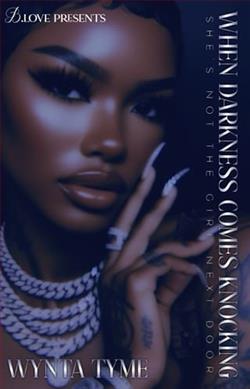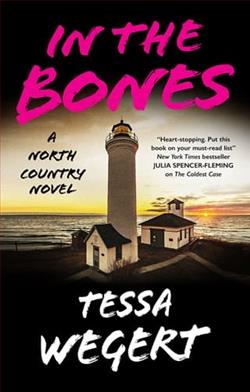Page 22 of The Scandal of the Deceived Duchess
“What happened?” she asked. Amelia immediately regretted having asked the question when she saw a shadow of pain darken his face.
“My mother burned in the barn with many of the other people held there. There had been no discrimination whether black or white. Everyone was burnt to a cinder with my father being made to watch…”
Amelia gulped when she saw Jonathan’s eyes water over. She half expected him to cry. She looked down hastily to give him some modesty in the act. When she looked back up, his piercing blue eyes were almost dry.
“As the fire grew in force, my father broke away from the men holding him and ran to the barn in an attempt to save my mother. He never came back.”
“How horrible…and you saw all this?”
Jonathan nodded. “My mammy held on to me to prevent me from running over there. We were hiding in the main house. She tried to drag me away from the window lest I witness more and the British see us, but I remained stuck to the spot. We watched until the fires burnt out.” He sighed. “I should have perished that day as well, but God works in mysterious ways.”
“How do you mean?” asked Amelia with concern emblazoned on her features.
“Before the British could plunder the main house and burn it to the ground like the barn, their scouts reported back. George Washington’s army was on the move south to crush Lord Cornwallis once and for all. They were perilously close to Fair Weather Heaths’, so the British troop that had massacred so many people had to retreat to Yorktown and the main British army.”
“I am so sorry, Jonathan.” Amelia reached out to touch his shoulder. It was the first gesture of intimacy since they had met. She realized that under the masculine veneer of the captain and plantation owner was a man of many facets, sides that spoke of his painful past and described his character. It impressed her that his personality had not been marred by the travails of life.
“The vile dragoon colonel…” Jonathan cleared his throat bronchially. “Colonel Clayton killed my parents a few months before the war ended in the Americas. On October 1781 the first step was taken – Cornwallis surrendered at Yorktown and many British prisoners of war were taken. That defeat convinced the British to negotiate rather than prolong the war indefinitely. It set the stage for the peace treaty in Paris a few years later.”
“And Clayton. Did he act under direct orders from Cornwallis?” asked Amelia, hoping that her countrymen would never have stooped so low.
“Cornwallis never gave the order for such a scorched earth policy. The man had taken it upon himself to punish them, to his mind, traitors to the crown. My mother and father were just two of the hundreds of victims killed by the colonel.”
“What happened to the colonel? Do you know?”
“He was court-martialed and shot thanks to a direct order from Cornwallis.” Jonathan shrugged. “I suppose justice finds everyone in the end.”
They rode on in silence for a while, their horses carrying them at a trot. Amelia didn’t know what else to say. Her mind worked busily in an attempt to find some words that might put the handsome American’s memories to rest. She snuck furtive glances in his direction. She liked his profile that was strong and well defined by a prominent chin and a straight nose that beaked slightly at the tip.
Yet, it wasn’t the way he looked that drew her in. His manner was something to admire. When he didn’t focus all of his attention on the happenings of war, he was almost reflective, deep and a man of many facets. In her mind, he was the enemy. And yet, she wasn’t certain whether she could despise him in the same way she had done when he had captured the HMSCapricorn.
“You said that your family is of noble origins? Does that mean you once had a title?” she asked.
“I never did, but my grandfather was a laird when he came to the onetime colonies to find a new life. His name was Laird Duncan Mackinnon of Mitchell,” said Jonathan.
“Why did he leave?”
“It was after the Battle of Culloden in 1746. You know the one when the British defeated the Scots during the Jacobite rising of 1745, ending Bonnie Prince Charlie’s claim to the British throne.”
“Yes, the Duke of Cumberland led the British forces,” said Amelia.
Jonathan smiled. “You certainly know your history, Amelia.” He studied her more closely. Jonathan had sworn not to let himself be immersed by her pristine countenance, but it was nigh impossible. Amelia was like an angel when she wasn’t fighting him. He loved her mind even more though. It was full of information. Jonathan did not know many women, but he was certain that few existed with Amelia’s spirit and thirst for knowledge.
She wore a bonnet with silk and wool, embellished with a fur lining. Her riding habit clung to her frame, offering glimpses of her perfect lines. Her daintiness and sweet face made him want to reach out and take her into his arms. Jonathan had the undying urge to hold her and never let go. He would protect a woman such as Amelia with his life. And before he knew it, he was behaving as his father had done – one love for one life.
The feeling was alien to him. Everything from the crunching snow under the horses’ hooves, the quietness all around them to the trees bare of their foliage added to the sensation. He was naked before it, vulnerable but keen to discover more of the emotions coursing inside of him. The cold air stood in such contrast to the heat within his body that was like warm butter, soft and smooth.
His gaze remained fixed on her face as it persisted motionless, facing in the direction in which they were headed. Amelia moved gracefully and in perfect harmony with the horse. Her long legs mantled in a tweed skirt hung elegantly down the right flank of her mount in a seamless sidesaddle posture. She was perfect, he conceded. Never had Jonathan beheld such a woman before.
“He left because Cumberland issued the order that the rebels be given no quarter?” As the words past her lips, Amelia turned her head to find Jonathan studying her. His gaze was warm and alluring, and she found herself liking the way he looked at her. It had something proprietary and safe about it, as if he were claiming her as his own.
“Yes. Had he stayed, as one of the leading men in the Jacobite host, he would have been executed on Tower Hill in London as a high-ranking rebel lord. Also, it was the end of the clan-based system in which the laird acted as a feudal lord with omnipotent judicial powers. There was nothing left for him in Scotland, and he knew that the time of the clansmen was over, so he took his family and left.”
Jonathan let his arm float over the surrounding land. “And this is where he brought them – to a new life in a new land.”
Chapter 11
The Workings of Fair Weather Heaths’ and Beyond















